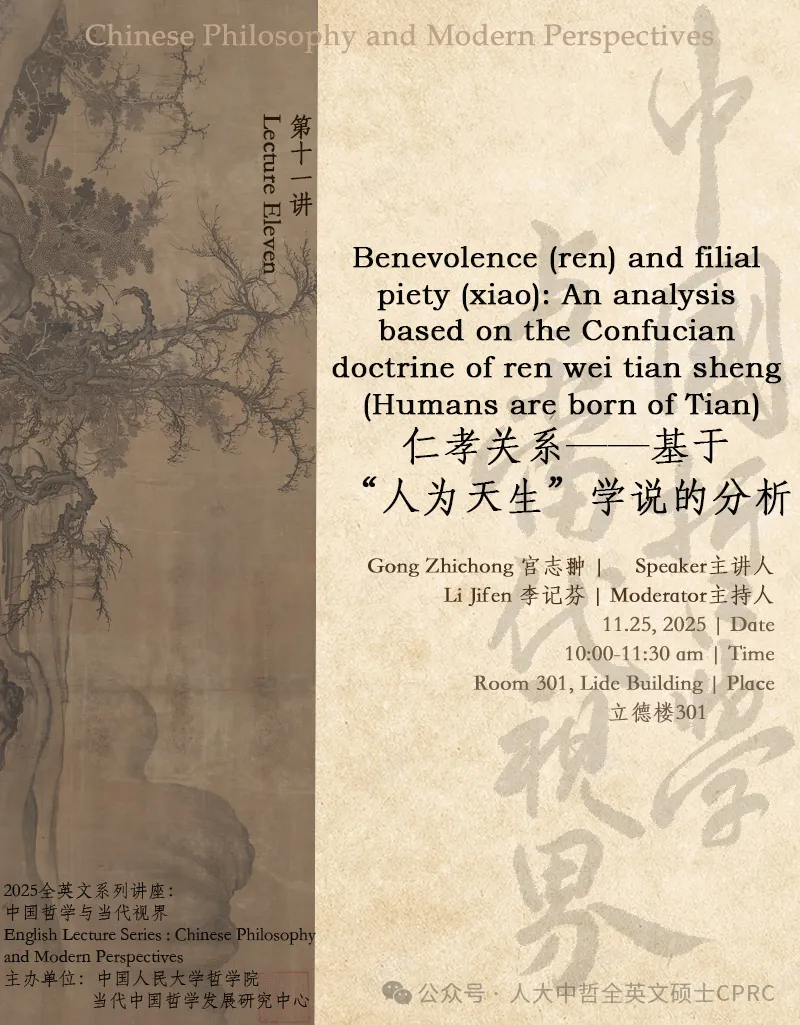预告·第十一讲 | 仁孝关系——基于“人为天生”学说的分析 | 全英文系列讲座:中国哲学与当代视界·2025
日期:2025-11-23
第十一讲:
仁孝关系——基于“人为天生”学说的分析
Lecture Eleven:
Benevolence (ren) and filial piety (xiao): An analysis based on the Confucian doctrine of ren wei tian sheng (Humans are born of Tian)
Speaker主讲人
Gong Zhichong 宫志翀
Moderator主持人
Li Jifen 李记芬
Date日期
11.25, 2025
Time时间
10:00-11:30 am
Place地点
Room 301, Lide Building 立德楼301
About the speaker:
Zhichong Gong, an associate professor in school of Philosophy at Renmin University of China. He got his Ph.D of Philosophy from Peking University. His research interests include the Confucian political philosophy, modern Chinese political thought, and Confucian classics.
Abstract:
Since the 1990s, Confucianism has often been criticized for its emphasis on family and filial piety. Defenders, on the other hand, have emphasized the universal significance of benevolence in Confucianism. Therefore, for Confucianism nowadays, the characteristics and relationship between benevolence and filial piety are crucial topics. This lecture is a discussion of the relationship between benevolence and filial piety in Confucianism from a new doctrine, i.e., the doctrine of ren wei tian sheng (人为天生 , Humans are born of Tian). This was an important doctrinal trend in the theory of benevolence in Confucianism during the Warring States Period (453-221 BCE) and the Han Dynasty (202 BCE to 220 CE). At that time, Confucianists believed that humans are born of Tian. This was extended to mean that, in contrast to “being born into a family,” part of being "human" was also given by Tian, which indicates the significance of the virtue of benevolence. This can be contrasted with the virtue of filial piety for humans. The above two virtues are applicable to different occasions, and require different moral competencies. And Confucianism offers a way of cultivating the virtue that filial piety is the basis of benevolence. Based on these premises, Confucianism conceived of an ideal order. It holds that the gentlemen (junzi) involved in politics must fulfill the virtues of benevolence, justice, loyalty and trustworthiness, while the ordinary people (xiaoren) are only expected to do their filial duty within the family.
主办单位
中国人民大学哲学院
当代中国哲学发展研究中心


